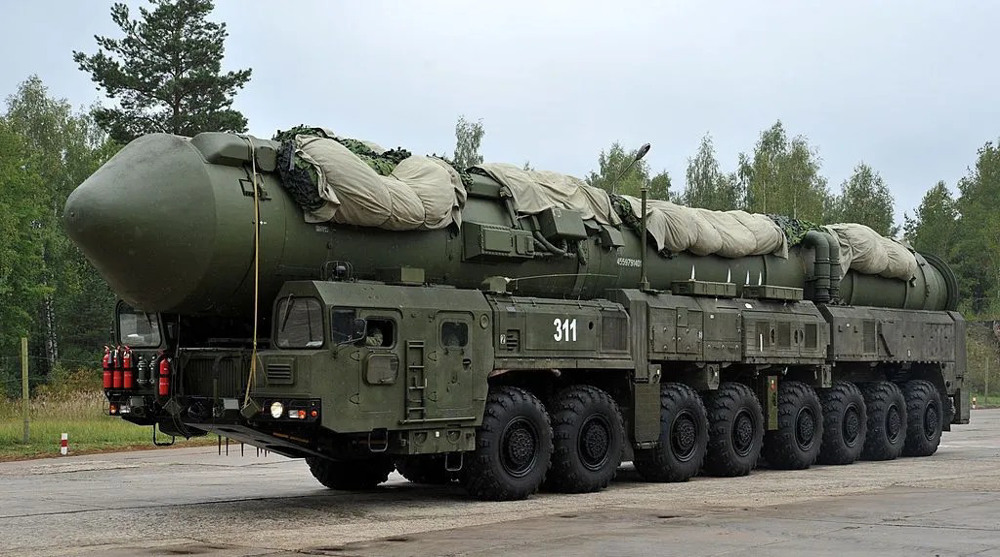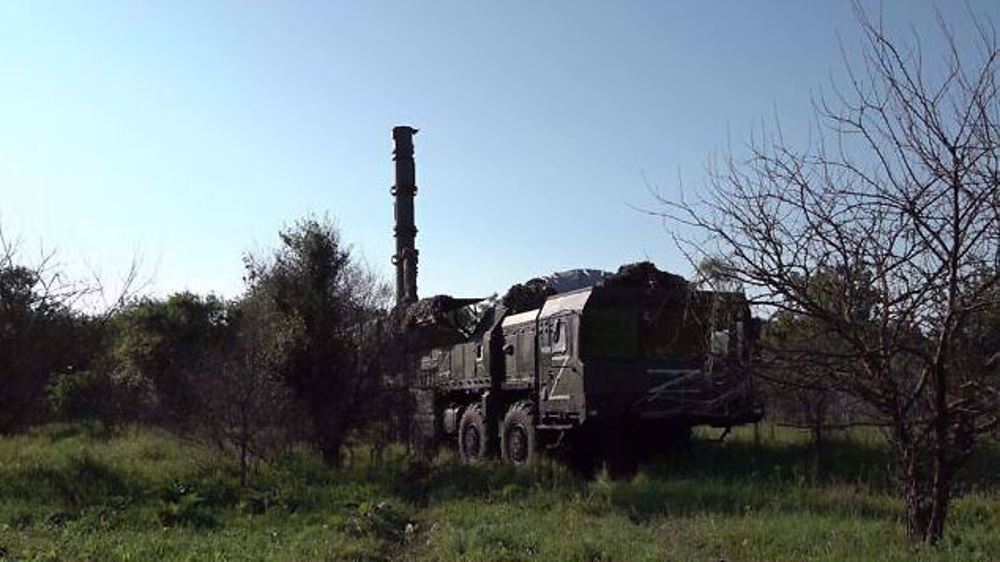Russia says Turkey hinders Kurds’ fight against Daesh
Russian Foreign Minister Sergei Lavrov slammed Turkey Wednesday for attacking positions of Kurdish fighters, saying Ankara is “frustrating” efforts made to fight the Daesh Takfiri terrorists.
“When the Kurds try and take back territory from Islamic State (Daesh) the Turkish side starts artillery strikes on the Kurdish positions frustrating their attempts to fight the terrorist organization,” Lavrov said in a joint press conference with his German counterpart, Frank-Walter Steinmeier, in the Russian capital, Moscow.
The Russian foreign minister also cast doubt on Ankara’s claim of battling against terrorism.
Ankara “refuses to effectively stick to the path of the fight against terrorism and more than that, is using the slogan of the war against terrorism to suppress Kurdish” forces in Syria and Turkey," he said.
Earlier this week, Lavrov also criticized Turkey’s shelling of Kurdish positions in Syria and called Ankara’s actions on the border with the Arab country “creeping expansion.” He said that Moscow has evidence that Turkish forces are on Syrian territory despite Ankara’s denial of troops’ entry into the war-torn Arab country.
Turkey, which has been among the main supporters of the militant groups operating in Syria, has been attacking positions of Kurdish People’s Protection Units, also known as the YPG, over the past few months, accusing them of having links to the Kurdistan Workers’ Party (PKK) militant group.

The YPG, which is nearly in control of Syria’s entire northern border with Turkey, has been fighting against Daesh, which has seized parts of Iraq and Syria.
Elsewhere in the press conference, Lavrov said Russia and Germany agreed on the need for inclusive Syria peace talks in Geneva, Switzerland.
The German foreign minister, for his part, said there was no time to lose in peace talks on the Syria conflict, calling on all parties not to stall the negotiations.
The new round of UN-backed peace talks between the Syrian government and the foreign-sponsored opposition started in Geneva on March 14 to find a solution for the five years of conflict in the Arab country.
The negotiations have time and again failed to conclude as the opposition delegation, mainly the so-called High Negotiations Committee (HNC), has made demands the government rejects. Those demands include President Bashar al-Assad’s stepping down in a future government.
How US abuses its UN veto power to enable Israel’s genocidal war on Gaza
Iran refutes US, UK accusations over Ukraine war, West Asia conflicts
Pakistani town erupts in protest after terrorists kill scores of Shia Muslims
US senator threatens ICC with military action over Netanyahu sentence
Iran: ICC indictment of Netanyahu should have included 'genocide'
VIDEO | IAEA anti-Iran resolution
Iran urges pope to help end Israeli onslaught in Gaza
VIDEO | ICC's warrant against Netanyahu











 This makes it easy to access the Press TV website
This makes it easy to access the Press TV website